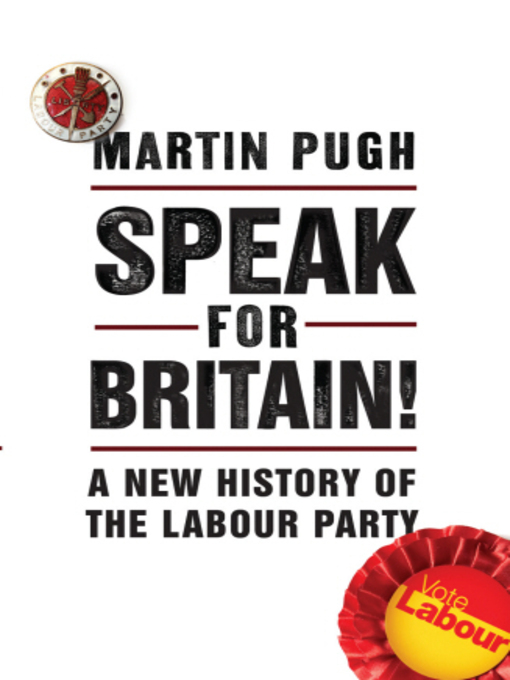Written at a critical juncture in the history of the Labour Party, Speak for Britain! is a thought-provoking and highly original interpretation of the party's evolution, from its trade union origins to its status as a national governing party. It charts Labour's rise to power by re-examining the impact of the First World War, the general strike of 1926, Labour's breakthrough at the 1945 general election, the influence of post-war affluence and consumerism on the fortunes and character of the party, and its revival after the defeats of the Thatcher era.
Controversially, Pugh argues that Labour never entirely succeeded in becoming 'the party of the working class'; many of its influential recruits - from Oswald Mosley to Hugh Gaitskell to Tony Blair - were from middle and upper-class Conservative backgrounds and rather than converting the working class to socialism, Labour adapted itself to local and regional political cultures.
- New eBook additions
- Available now
- Most popular
- Childhood Classic eBooks
- Dyslexia
- Islamophobia Awareness Month
- Unmissable Picture Books
- Try something different
- Crime Doesn't Pay
- Novella & Short Story Classics
- Read-Along
- Out-of-this-world Sci-Fi
- Get Creative at Home
- See all
- New audiobook additions
- Islamophobia Awareness Month
- Books on Film
- Try something different
- Available now
- Read by a Celeb
- Most popular
- New kids additions
- New teen additions
- Interesting Lives: Memoirs & Biographies
- Crime Doesn't Pay
- Popular Audiobooks
- Series Starters
- See all

